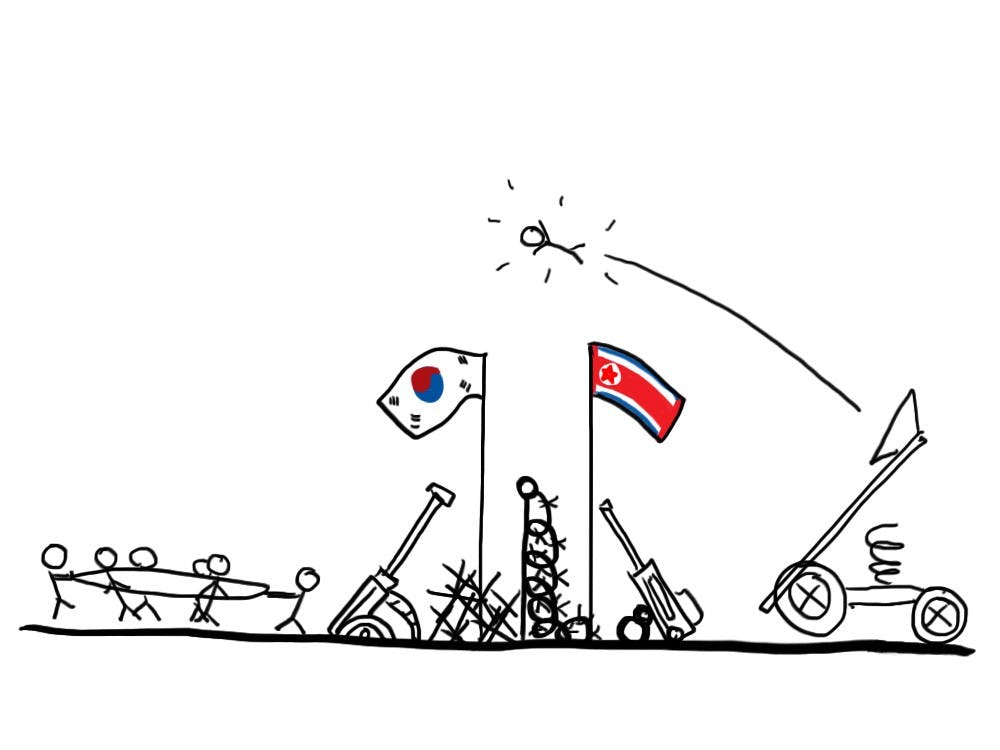When North Korean Kim Jong Un took over for his father Kim Jong Il in 2011, it was seen as a weakening in the regime that had remained isolationist despite the trend toward globalization.
After Kim Jong Un released new sets of photos of him and his military leaders, it was identified that one official in particular was missing.
Former general Ri Yong Gil disappeared last February, and many websites reported him dead. There were rumors of re-education of the general.
When he reemerged into the public eye, he was demoted from a four-star general to a three-star.
General Ri Yong Gil is not the only example of a senior North Korean officer not following the nation’s wishes.
North Korea’s deputy ambassador Thae Yong Ho lived a privileged life in comparison to his fellow citizens.
He lived in England, and between his dinners at Indian restaurants and games of tennis, he never wavered from North Korea’s policies.
However, on Aug. 17, he defected to South Korea and become one of the most prominent North Koreans to defect in twenty years.
While Thae’s defection was not without consequence, many believe that it was a natural progression of the freedom that he was given as an ambassador.
In South Korea, Thae is able to live a life of greater freedom than he would have been allowed in his native country.
After seeing the freedoms and liberties that he had outside of his country, it makes sense that he would choose to leave an oppressive regime.
While his defection has important meaning for himself and his family, it also reveals somethinwg about the North Korean government.
While Kim Jong Un is seen as more unstable and impulsive than his father, there has been a weakening in the isolated nation.
Mr. Jeong, a South Korean government official, told the New York Times that this was a “sign that some of the core elite in the North are losing hope in the Kim Jong Un regime.”
If senior officials who could live comfortably within the regime are defecting, what does that mean for the common citizens?
Though the number of defections has fallen under Kim Jong Un, this is most likely the result of the tighter border control that North Korea negotiated with China.
The strength of North Korea results from its isolation.
Because so few intelligence leaders know what occurs in the hermit kingdom, there is always a sense of cautiousness about their actions.
Thae’s defection will provide important information that can be used to pull back the curtain on this reclusive nation.
The Editorial Board applauds Thae’s defection and hope that his transition into South Korean society goes without any setbacks.
It was courageous for a man who enjoyed the luxuries of his nation’s oppression to willingly defect.
We hope that someday all of his fellow citizens will be allowed these same freedoms.




